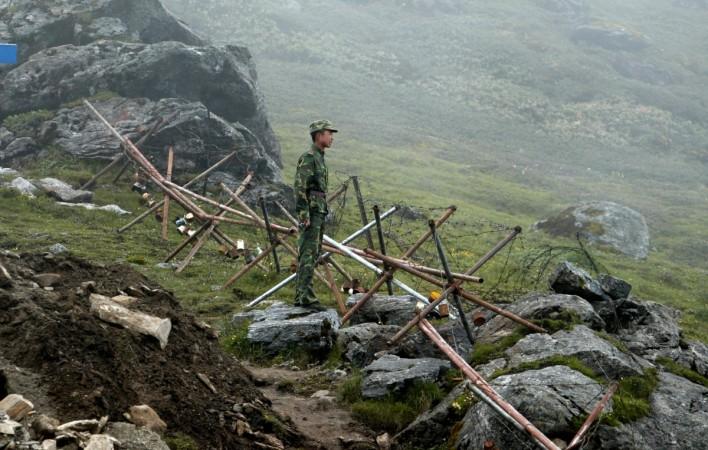
A lot has been said about the Doklam standoff since the conflict began on June 16 and came to an end on August 28. Reports on the standoff and India-China relations have been trickling in even after the two countries found a resolution to the issue, and the latest statement comes from a major general of China's People's Liberation Army.
Calling the resolution of the Doklam standoff "one of the best results possible," Qiao Liang, in a Global Times Op-ed, said that many people in the country had anti-India views and wanted the PLA to go to war with the Indian Army. But these were the people who, he said, were "unfamiliar with China's strategic positioning" and did not have a "clear understanding" of the matter.
"China and India are both neighbors and competitors, but not all competitors must be treated in the toughest way," Liang said in the article.
The Chinese government, on more than one occasion, has said that it wants to further strategic and business ties with New Delhi, and Liang's statement adds weight to it.
"The Doklam confrontation was solved in the way it should have been. And the most important thing is that when you understand China's strategic positioning and you cannot bring the entire world under your domination, you are willing to leave well enough alone," Liang explained. "Only in this way can one completely reach his goal, otherwise, haste makes waste or the result and your desired outcome may even be poles apart."
He also spoke about the road construction that China was carrying out on the Doklam plateau. It was this activity that first started the conflict as India had halted the construction, while many Chinese experts believed that New Delhi has no business knowing what Beijing is doing within its territory.
But Liang explained that the matter itself has no right or wrong and it depends on the timing. A right thing turns out to be wrong if done at the wrong time and only doing the right thing at the right time is what brings success, he wrote.
He also slammed those who urged for a war between India and China. Many experts, during the standoff, had said that "India must be taught a lesson," and how China was more powerful than India economically and military wise. The Chinese media as well as experts took an aggressive stand at the time and said that the PLA would be more than happy to "kick out" India out of Chinese territory.

But Liang noted that war is not the way to prove that the nation is developed and powerful. "Many people think that China has a powerful national strength, including a strong military power, thus only war can demonstrate China's power. But resorting to war is irresponsible for the country and the country's future as war has always been the last resort to solve problems. Whenever there may be a way to solve a conflict without war, war should be avoided," he wrote. The country can maintain peace and it will be the best to avoid war."
The Doklam standoff, which went on for over two months, came to an end on August 28 after the two countries discussed the matter and decided to pull back forces from the area. The Ministry of External Affairs then released a statement saying that an "expeditious disengagement of border personnel has been agreed to and is on-going."

















